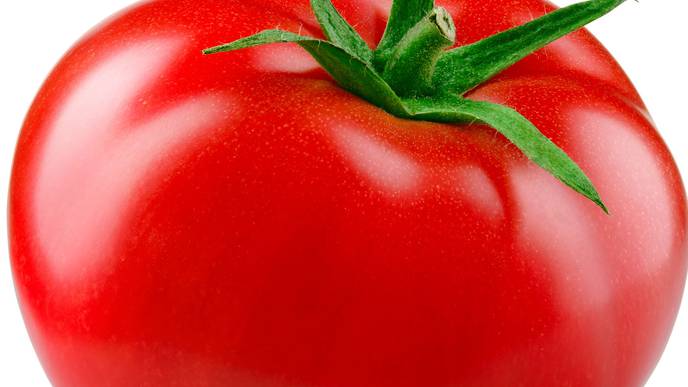Produce Prescription Programs for Patients with Diabetes Could Save Billions in Healthcare Costs, Study Shows

07/10/2023
image: Produce prescription programs for patients with diabetes could save billions in healthcare costs, study showsview more
Credit: Alonso Nichols/Tufts University
An apple a day not only keeps the doctor away, it also could save the United States at least $40 billion in medical bills, report Friedman School of Nutrition Science and Policy at Tufts University researchers in a new study published July 7 in the Journal of the American Heart Association. Their modeled implementation of a nationwide produce prescription program—which would provide free or discounted fruits and vegetables to eligible Americans living with diabetes—projected extensive reductions in national rates of cardiovascular disease and associated healthcare costs.
Public health agencies and non-profit organizations have been experimenting with variations of produce prescription programs for almost a decade, with accelerating evidence for their effectiveness. Typically, a patient with a diet-related health condition can visit a participating healthcare provider to receive vouchers or electronic cards that can be redeemed for free or discounted fruits and vegetables delivered to the patient’s home or picked up from a grocery store, farmer’s market, or healthcare food farmacy.
While produce prescriptions have definable benefits for health—for example, improving blood sugar control, body weight and blood pressure levels—long-term national effects of this promising strategy, if fully implemented, had not previously been investigated.
“Of the strategies that can improve American’s nutrition and diet-related health outcomes, evidence continues to build that produce prescriptions are a terrific option,” says senior author Dariush Mozaffarian, a cardiologist and Jean Mayer Professor of Nutrition at the Friedman School, who is also launching a new cross-university initiative that will be the first of its kind to focus on advancing Food is Medicine. “These innovative treatments are exciting because they can not only improve health and reduce healthcare spending, but also reduce disparities by reaching those patients who are most in need.”
Their analysis estimated that a national produce prescription program for 40- to 79-year-olds with diabetes and food insecurity could prevent 296,000 cases of cardiovascular disease (for example, heart attacks and strokes) and gain 260,000 quality-adjusted life years (years lived with good health) over the lifetime of current patients. Through these health gains, these benefits were also estimated to save $39.6 billion in health care spending and $4.8 billion in costs of lost productivity. At the same time, implementing the program nationally would cost $44.3 billion, including all expenses for screening patients, providing food and nutrition education, and necessary administration.
Taken into account all costs, a national produce prescription program for patients with diabetes and food security would be highly cost-effective, costing $18,000 per quality-adjusted life year gained. This is on par with other “best buys” in health care, like blood pressure screening and control, cholesterols screening and control, and cancer screening. (In comparison, the new GLP-1 weight loss medications cost about $200,000 per quality-adjusted life year gained).
“When we looked at different subgroups of Americans, we found broadly similar benefits by insurance type, race, and ethnicity,” says first author Lu Wang, a postdoctoral fellow at the Friedman School. “These results suggest that a national produce prescription initiative could benefit all Americans, highlighting the potential of Food is Medicine strategies to alleviate health inequities caused by food and nutrition insecurity and diet-related diseases.”
To better understand how produce prescriptions might work for a larger patient population receiving long-term treatment, the Friedman School team pooled studies of 20 smaller-scale initiatives and nationally representative datasets to run their simulation. The study assumed that all participants—American adults age 40-79 who are living with diabetes and food insecurity—would increase their fruit and vegetable consumption by an average of 0.8 servings per day (the equivalent of eating one small apple), with resulting reductions to their BMI and HbA1c (blood pressure levels).
The researchers noted both limitations and strengths. While there is potential for either over- or underestimation of the health impact and costs of these initiatives, the model was based on the best available data, incorporating the latest national population and health metrics combined with results from real-world implementation of produce-prescription programs. If fewer people than expected participated, the health benefits and costs would each proportionally be reduced, but still be meaningful.
“A national program could be enacted through inclusion of produce prescriptions as a covered healthcare benefit, already being piloted by several states under Medicaid section 1115 waivers as well as by private healthcare payers,” says Mozaffarian. “Our new findings help inform implementation to scale and evaluate these programs across the United States.”
Research reported in this article was supported by the National Institutes of Health's National Heart, Lung, and Blood Institute under award R01HL115189. Complete information on authors, funders, methodology, and conflicts of interest is available in the published paper. The content is solely the responsibility of the authors and does not necessarily represent the official views of the funders.
Journal
Journal of the American Heart Association
Article Publication Date
7-Jul-2023
Disclaimer: AAAS and EurekAlert! are not responsible for the accuracy of news releases posted to EurekAlert! by contributing institutions or for the use of any information through the EurekAlert system.

Facebook Comments